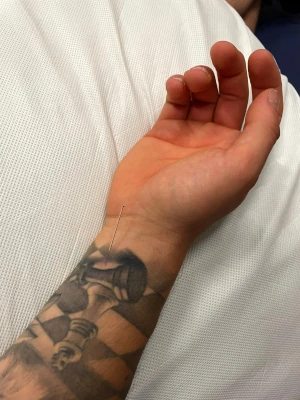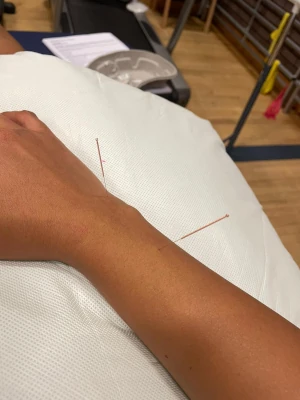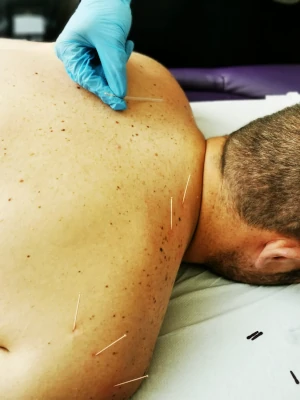My Services

Physiotherapists are the largest group of medical professionals in the UK practising acupuncture.
The vast majority of acupuncture treatments in the UK is for musculoskeletal (physiotherapy requiring) conditions.
AACP members are Chartered Physiotherapists who had full medical training and in addition many have worked at least for one year with patients in a hospital setting or in private practice, before starting their acupuncture learning.
So they are fully aware of the physiology (functioning) of the body through their physiotherapy study and practical work.
Acupuncture, a traditional form of Chinese medicine, can be used on its own or in combination with physiotherapy to treat a range of musculoskeletal conditions. Acupuncture can be effective in reducing pain associated with osteoarthritis, neck pain and back pain allowing you to get the most out of your physiotherapy.
How does acupuncture work?
The treatment consists of the insertion of thin needles into the skin and underlying tissues, or into certain trigger points.
The needle insertion may feel like a mild pinprick and should only give temporary discomfort. The number of needles used will vary and may be left in place for up to 20 minutes or more.
What are the benefits of acupuncture by a physiotherapist?
Physiotherapists can use acupuncture to relieve pain and other symptoms. They are in a unique position of being able to combine acupuncture with other treatment methods such as exercises, manipulation and stretching. This combined approach is more likely to lead to successful rehabilitation.
How will acupuncture make me feel?
A session of acupuncture can affect people differently. Some people may feel relaxed and calm, others might feel tired for a few hours, or even more alert and energised. You might find that the symptoms of your condition will temporarily get worse. You might also be advised not to drive after the treatment.
More info

Physiotherapists are the largest group of medical professionals in the UK practising acupuncture.
The vast majority of acupuncture treatments in the UK is for musculoskeletal (physiotherapy requiring) conditions.
AACP members are Chartered Physiotherapists who had full medical training and in addition many have worked at least for one year with patients in a hospital setting or in private practice, before starting their acupuncture learning.
So they are fully aware of the physiology (functioning) of the body through their physiotherapy study and practical work.
Acupuncture, a traditional form of Chinese medicine, can be used on its own or in combination with physiotherapy to treat a range of musculoskeletal conditions. Acupuncture can be effective in reducing pain associated with osteoarthritis, neck pain and back pain allowing you to get the most out of your physiotherapy.
How does acupuncture work?
The treatment consists of the insertion of thin needles into the skin and underlying tissues, or into certain trigger points.
The needle insertion may feel like a mild pinprick and should only give temporary discomfort. The number of needles used will vary and may be left in place for up to 20 minutes or more.
What are the benefits of acupuncture by a physiotherapist?
Physiotherapists can use acupuncture to relieve pain and other symptoms. They are in a unique position of being able to combine acupuncture with other treatment methods such as exercises, manipulation and stretching. This combined approach is more likely to lead to successful rehabilitation.
How will acupuncture make me feel?
A session of acupuncture can affect people differently. Some people may feel relaxed and calm, others might feel tired for a few hours, or even more alert and energised. You might find that the symptoms of your condition will temporarily get worse. You might also be advised not to drive after the treatment.










